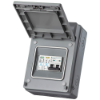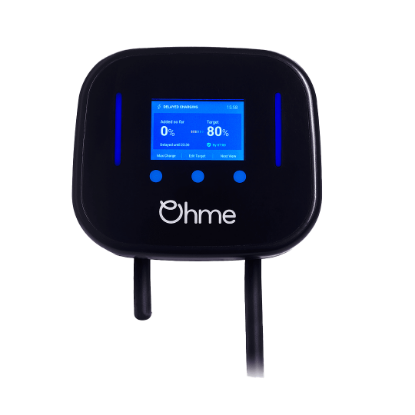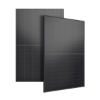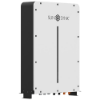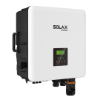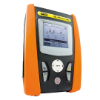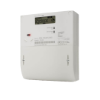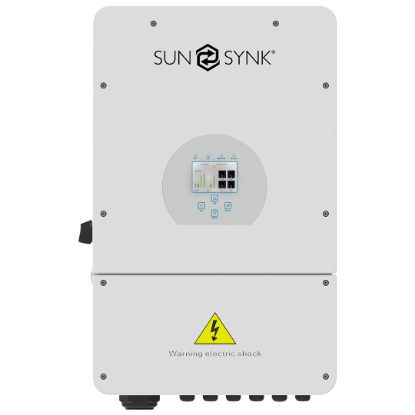Solar panels have become an increasingly common sight on rooftops across the UK, and the popularity of solar panels UK continues to grow. If you’re considering joining the solar revolution, you probably have a few questions. How exactly do these systems turn sunlight into useable electricity? What do you need to know before arranging a solar installation for your home or business? And are they really worth it in Britain’s often cloudy weather, and what are the potential solar savings? In this guide, we’ll answer all these questions and more in a friendly, easy-to-understand way. By the end, you’ll understand how solar panels function, what to expect when installing them, and how to get the most from your system – whether for your home or even a small business. Let’s shed some light on solar energy!
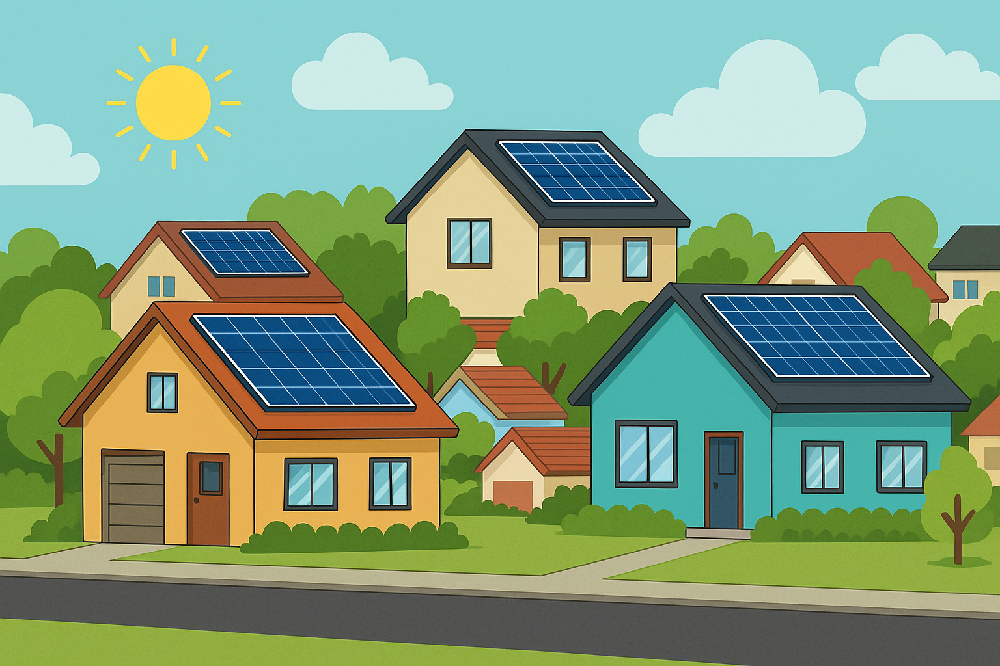
How Do Solar Panels Work?
What's Inside Your Solar Panel?
Think of a solar panel as a collection of many small parts called solar cells, all neatly packaged together. It's these individual cells that are the real stars of the show – they're the bits that cleverly turn ordinary sunlight into electrical energy. The panel itself is just the sturdy frame holding them all in the right place to catch those rays.
The Clever Layers That Make It Happen
Now, each of these tiny solar cells is made of special materials, usually silicon, arranged in very thin layers. These layers are treated in such a way that they create a sort of one-way street for electricity. This setup is vital because it forces the electrical energy, once it's created, to flow in a particular direction, which is key to actually using it.
How Sunlight Makes Electricity
So, when the sun shines down onto these special layers in the solar cells, the sunlight gives the material a bit of an energy kick. This 'kick' gets tiny electrical particles, called electrons, moving. It's this movement of electrons that is, quite simply, electricity. So, the brighter the sun, the more energy is delivered, and the more electricity can be generated. Even on a cloudy day, some sunlight still gets through, so the panels will still be producing some power, just not as much.
One-Way Electricity: Direct Current (DC)
The electricity that the solar panels first produce is a specific type called Direct Current, or DC for short. This just means it flows steadily in one single direction, a bit like water flowing down a straight pipe. While DC is useful for some things, it's not the type of electricity that powers most things in our homes.
Getting it Ready for Your Home: The Inverter
Our homes in the UK run on a different kind of electricity called Alternating Current, or AC, where the current rapidly switches direction back and forth. Because your panels make DC, you need a clever box of tricks called an inverter. This usually sits in your loft or perhaps in the garage. Its job is to take the DC electricity from your solar panels and change it into the AC electricity that your telly, kettle, lights, and everything else in your house can use. If your panels are making more electricity than you need at that moment, the inverter can also help send that spare power out to the national grid for others to use.

Answering Your Questions About Solar Panels
When it comes to investing in solar technology, UK homeowners often have many questions. Let's explore some of the most common queries to help you understand the landscape of solar energy and the benefits of solar panels UK.
Understanding Solar Panel Costs and Potential Solar Savings
One of the first questions potential solar adopters ask is about the cost. The price of installing solar panels UK can vary depending on the system's size and the type of equipment chosen. Generally, a typical residential solar panel system, comprising around 8–12 panels, might range from £5,000 to £8,000, including a professional solar installation. For instance, a ten-panel system (approximately 3–4 kW) could cost between £6,000 and £7,500. Adding a solar battery to store surplus energy can significantly increase the initial outlay, potentially adding another £5,000 to £7,000 to the total. If you're exploring options to maximise your energy usage and enhance your solar savings, Evergy offers a selection of advanced energy storage solutions, like the Solax IES 5.1kWh battery, on our website.
These figures can fluctuate based on the installer, geographical location, and specific product choices. However, there's good news for UK residents: a 0% VAT rate applies to solar panels and batteries until 2027, reducing the upfront financial burden. This tax relief, coupled with a decade of falling panel prices, has made solar installation more accessible than ever.
While the initial investment is a key consideration, it’s crucial to remember that solar panels are designed to pay for themselves over time through significant solar savings on energy bills. Many UK households see a payback period of 8–13 years, a timeframe shortened by currently high electricity prices and advancements in panel efficiency. For a deeper dive into the financial viability, check out our detailed guide: Are Solar Panels Worth It in the UK? (2025 Guide). Furthermore, you may be eligible for payments for any excess electricity you export back to the national grid through the Smart Export Guarantee (SEG) scheme. This allows you to earn money from the energy you don’t use, further improving the return on your investment and boosting your overall solar savings.
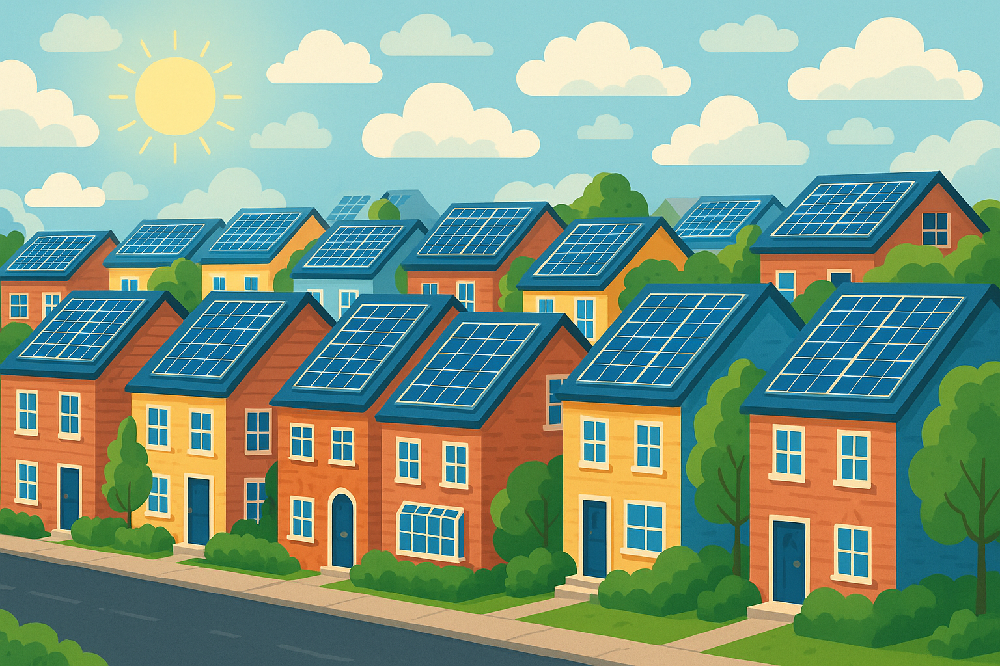
Choosing the Right Solar Panels: Efficiency Matters for Solar Panels UK
Solar technology has advanced significantly. Modern monocrystalline solar panels are currently the most efficient type commonly available for residential properties in the UK, often converting 20% or more of captured sunlight into electricity. In comparison, older polycrystalline panels typically offer conversion rates of around 15%–17%.
In practical terms, the most efficient residential panels, usually premium models, can generate between 400W and 500W per panel. This means fewer high-efficiency panels are needed to achieve the same total power output. If your roof space is limited and your budget allows, opting for high-efficiency panels is an excellent way to maximise power generation. Evergy’s range includes top-performing models, such as the Aiko Neostar 2S+ All Black 460W panel.
It's important to note that a panel's rated efficiency isn't the only factor determining its output. Real-world conditions such as the angle and orientation of your roof, ambient temperature, and any potential shading also play a significant role. However, for maximising output from solar panels UK, especially in limited spaces, high-efficiency is key. A good solar installer can help you compare different options, balancing efficiency and cost.

Navigating Regulations: Planning Permission and More for Your Solar Installation
A common concern for homeowners is whether planning permission is required for their solar installation. The good news is that in most instances, you won’t need formal planning permission to install solar panels on your property’s roof in the UK. Rooftop solar installations are generally considered "permitted development," provided they adhere to specific criteria (e.g., panels not protruding more than 20cm from the roof surface).
This streamlined approach means the majority of homeowners can proceed with fitting solar panels UK without a lengthy planning application process. However, there are exceptions for listed buildings, conservation areas, or Areas of Outstanding Natural Beauty. It's always prudent to verify with your local council. For a typical house, though, planning permission for your solar installation is usually not a barrier.
Accredited installers are well-versed in these regulations and will ensure your planned system complies with all necessary building regulations and electrical certifications for your solar installation.

Flexibility with Energy Suppliers After Your Solar Installation
A frequent question is whether a solar installation restricts your ability to switch energy suppliers. The answer is clear: you can still switch electricity suppliers freely after your solar PV system is operational. Your panels will generate power for your home, reducing the amount you need to purchase from the grid, but you will still maintain a connection to an electricity supplier.
You remain a consumer with the freedom to shop around. Actively seeking a competitive import tariff and an advantageous export tariff (under the SEG) is key to maximising your solar savings. Your solar installation doesn’t tie you down; you keep full freedom to change providers.
The Bright Side: Advantages of Solar Energy and Solar Savings
Solar panels offer a multitude of benefits for homeowners, businesses, and the planet, with significant solar savings being a major draw. Here are some primary advantages of investing in solar panels UK:
- Lower Electricity Bills & Enhanced Solar Savings: Once installed, solar panels generate free electricity. This leads to significant cuts in your bills, contributing to substantial solar savings over the lifespan of the solar panels UK system.
- Reduced Carbon Emissions: Solar energy is 100% green. An average home solar installation can save roughly 1–1.5 tonnes of CO₂ per year.
- Energy Independence: Generating your own power gives independence from volatile energy markets.
- Quiet and Low Maintenance: Solar panels operate silently and are very low-maintenance.
- Potential Boost to Property Value: A solar installation can increase your home’s value.
The UK now boasts over 15 gigawatts of installed solar capacity. The compelling combination of solar savings and environmental benefits make solar panels UK an attractive proposition. For more information on the benefits of renewable energy, you can visit the Energy Saving Trust website.
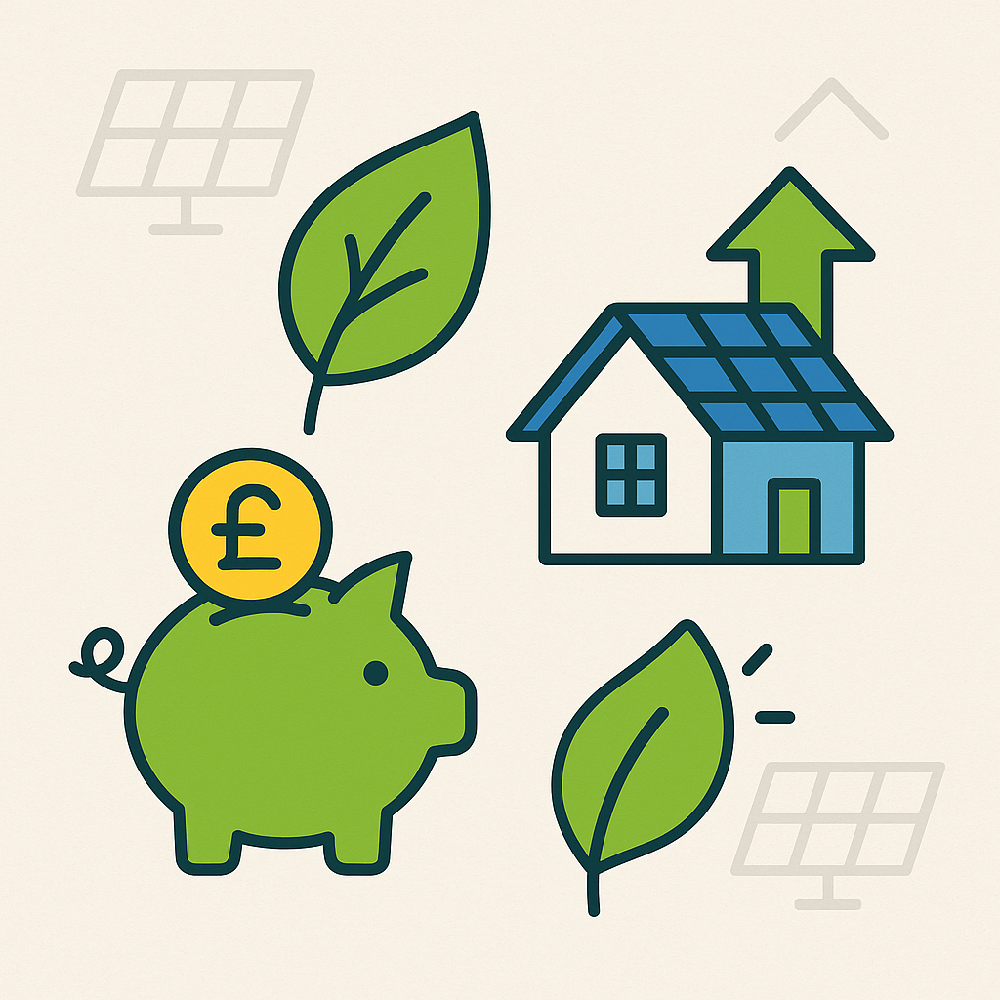
Getting Ready for Your Solar Installation: Key Considerations
If you're considering a solar installation, understanding the preparatory steps and key factors is crucial for a smooth process and optimal system performance for your solar panels UK.
Roof Suitability: Aspect and Shade for Your Solar Panels UK
The orientation of your roof plays a significant role. In the UK, a south-facing roof is ideal for solar panels UK to maximise electricity generation. However, south-east or south-west orientations are also very effective. Even east or west-facing roofs can make a solar installation worthwhile. North-facing roofs are generally not recommended. The pitch (angle) and any shading are also critical. An unshaded roof area is best for your solar panels UK.
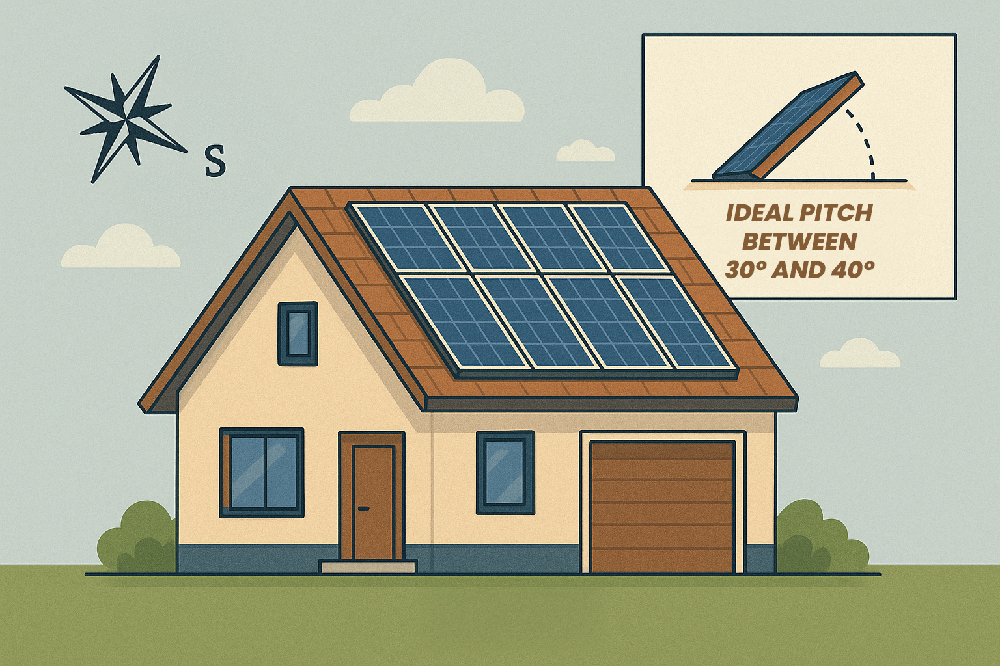
Solar Power in the UK Climate: Yes, Even with Clouds!
A persistent myth is that solar panels UK don’t work well because it’s too cloudy. This is incorrect. Solar panels generate electricity even on cloudy days, responding to visible light. While output is lower than on bright days, your solar installation will still contribute to your energy needs and solar savings year-round. Germany, with a similar climate, is a world leader in solar, proving its viability.
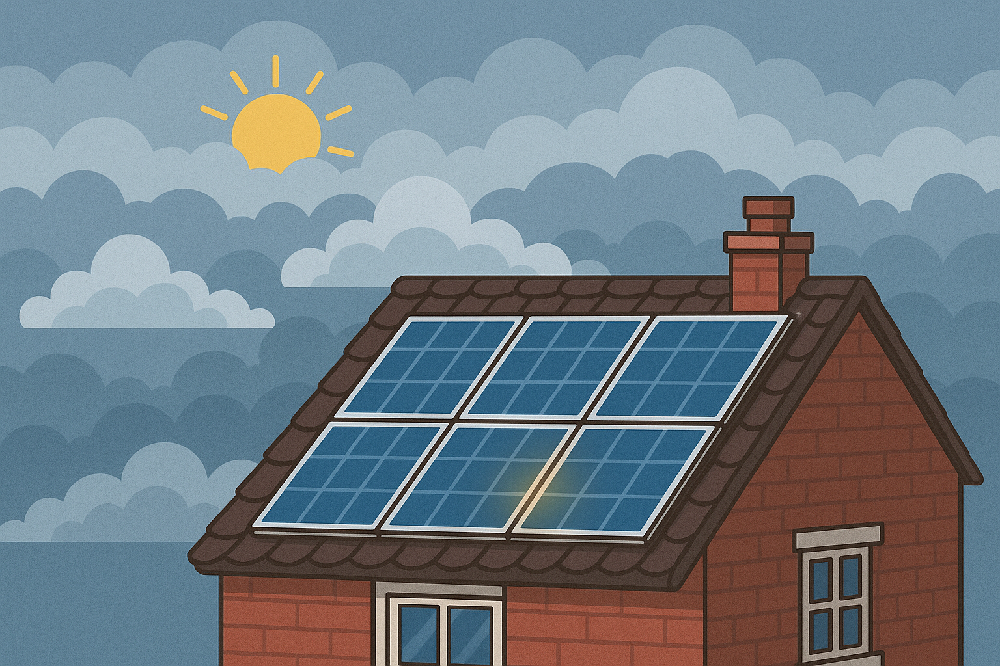
The Solar Installation Process: What to Expect
Before your new solar installation begins, choose a reputable MCS-certified installer. The Microgeneration Certification Scheme (MCS) is crucial for quality and SEG eligibility. You can find certified installers on the MCS website. Most homeowners obtain 2-3 quotes. When you're ready, Evergy can help design and install the perfect solar solution for your home; learn about our solar installation services directly on our services page.
Your installer will propose a system size for your solar panels UK based on your needs. This system will include not only the panels themselves but also a crucial component called an inverter, which converts the DC electricity generated by the panels into AC electricity your home can use. Evergy stocks efficient inverters like the Fox ESS G7 7kW Single Phase model. The installer also handles DNO applications. Ensure your roof is in good condition before the solar installation. The physical installation of the panels, inverter, and connection to your home's electricity supply typically takes 1–2 days and is not very disruptive. After your solar installation, ensure you have a smart meter for SEG payments and inform your home insurance provider.
A little preparation ensures your solar installation goes smoothly and your solar panels UK system operates at its best from day one, maximising your potential solar savings.
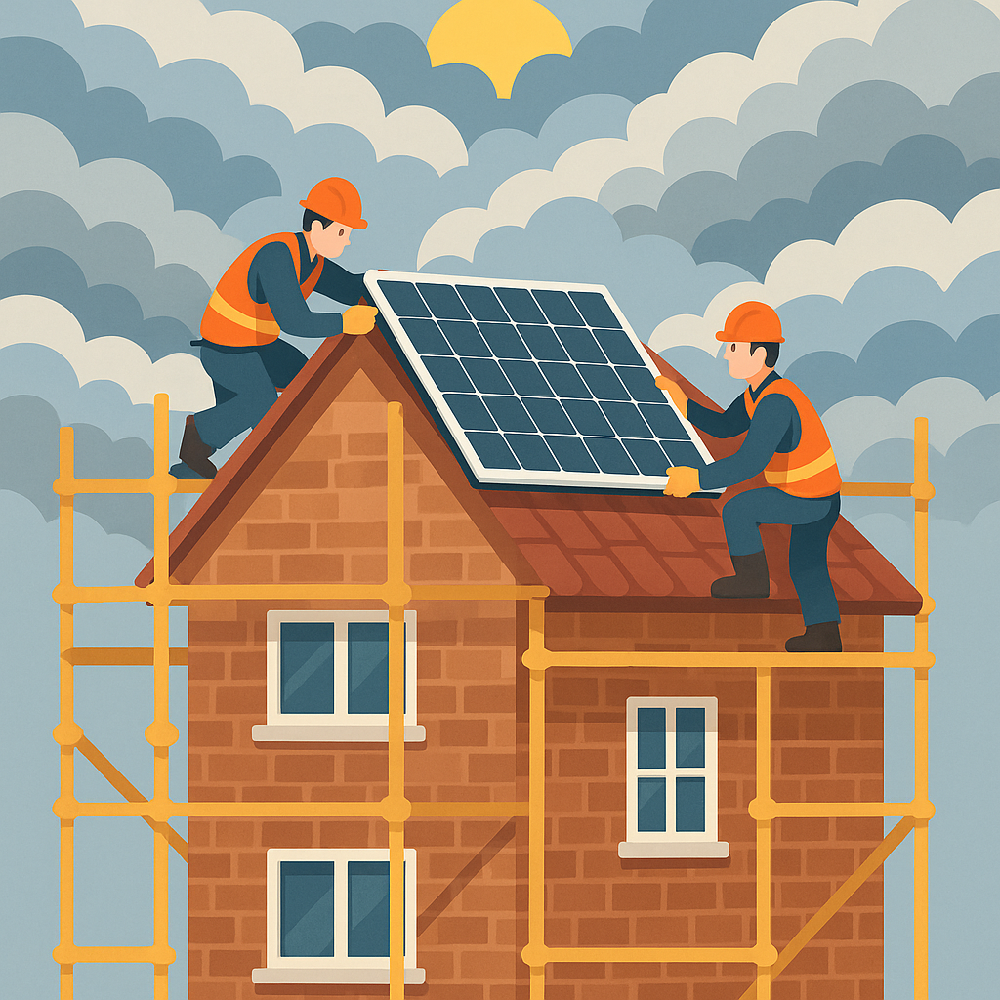
Your Journey to Solar Energy Starts Here
Investing in solar panels UK is a significant step towards reducing your energy bills, lowering your carbon footprint, and gaining greater energy independence. From understanding the costs and potential solar savings to navigating the straightforward solar installation process, going solar is more accessible and beneficial than ever. With the right information and a trusted partner, you can harness the power of the sun for a brighter, greener future.
Ready to explore how solar energy can transform your home and finances? The Evergy team is here to help. We offer a wide range of high-quality solar products and expert solar installation services across the UK.
- Discover our range of high-efficiency solar panels and advanced solar batteries.
- Learn more about our professional solar installation process.
- Contact Evergy today for personalised advice for your home or business. Let's power up your savings!
Need information on grants? We got you covered! Our latest post is all about Solar Panel Grants & Funding!



